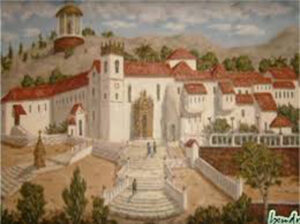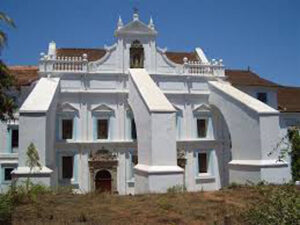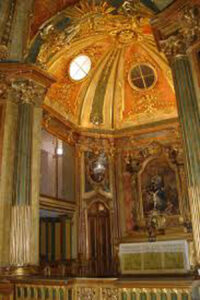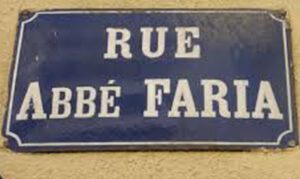
Three episodes among many others in the life of Abade Faria call for resounding cheers. The first is that he grew up under very unusual and trying circumstances, yet came out a champion. Born Joseph Custódio de Faria, in the year 1756, his parents Caetano Vitorino de Faria, who hailed from Colvale, and Rosa Maria de Souza, from Candolim, separated canonically within ten years of marriage. Thereafter, the husband took holy orders in the then seminary of Chorão; the wife joined St Monica, Asia’s largest nunnery, as a lay sister of the white veil. And the three were never together again as a family.
In such a situation, José Custódio came across as an oddity. He must have had a lot of explaining to do wherever he went. In those days, how was it to be raised by a single parent? This aspect of Goa’s forgotten celebrity hasn’t received attention from historians and psychologists. At fifteen, José Custódio travelled with his dad to Lisbon, en route to Rome. Priestly studies awaited him at the Pontifical Urban University. And both father and son secured doctorates in the Eternal City. The young man left no stone unturned in his solitary yet creative life.

The second reason to celebrate Abade Faria is that he sailed uncharted seas. He spent eight years (1780-88) with his nativist father, who was considered the ‘patriarch and patron’ of the Goan community in Lisbon. Then, Faria Jr. went to France, in search of greener pastures. His arrival coincided with the political turmoil of the Revolution, when royalists and clergy alike were getting a raw deal. He bided his time until 1795 when he placed himself at the head of a revolutionary battalion and marched against the National Convention. The five-member Directory that seized power ended the Reign of Terror; they also relaxed the measures that had been instituted against exiled priests and monarchists. Fr. José Custódio de Faria thus had the curious distinction of being the one and only Goan participant in the French Revolution.

By now, the Goan cleric was ‘Abbé Faria’ to everyone. ‘Abbé’ is French for priest or abbot; in Portuguese they wrongly called him ‘Abade’ (abbot), which he was not! As though compensating for that mistranslation, the father’s clarion call in Konkani was properly captured by bystanders: “Hi soglli bhaji… Kator re bhaji!” – ‘Strawheads all, chop them off!’ And that’s how a concerned father rescued his preacher son awestruck in the pulpit, before the Queen and the nobility gathered in the royal chapel at Queluz, Portugal.
There is no hard evidence to support that claim but the senior Faria’s alleged cry has long been part of the Goan lore. I have a hunch that this set the ball rolling for an unprecedented career for the junior Faria. That legendary transformation brought about by half a dozen, suggestive words uttered by a devoted father must have rung in the son’s ears for a long time to come. It may be facile to connect the episode to the theory of hypnotism by suggestion that Abade Faria pioneered, but here it goes nonetheless!

After a stint as professor of philosophy in the port city of Marseilles in 1811, the Abbé finally settled down in Paris where he gave sessions of hypnotism. He died there in 1819, but not before rejecting Mesmer’s animal magnetism and expounding a new theory of hypnotism. Faria put the subject on a sound footing, coining the term sommeil lucide (lucid sleep). He dwelt on this at length in his magnum opus, titled De la cause du sommeil lucide ou étude de la nature de l’homme, that is, ‘Of the Cause of Lucid Sleep or Study of the Nature of Man’, which was published posthumously. And it is a pity that the remaining three volumes never saw the light of day.
Abade Faria made a seminal contribution to the field of science. Hypnosis soon became a vital aid to physiology and medicine, and is still so to psychiatry, psychoanalysis and surgery. No doubt, the discoverer was initially derided by doctors, writers, and pastors, but the scientist came out victorious. Today, he is universally regarded as the ‘father of modern hypnotism’.
Three cheers, then, to the greatest untrained Goan scientist of all times, on his 200th death anniversary today!
(The Goan, 20 September 2019)
http://epaper.thegoan.net/2335415/The-Goan-Everyday/The-Goan-Everyday#page/10/1
Spellbinding compilation about the mesmerizing..oops, hypnotic abbe and his life on the high seas, palaces, witnessing the rabid French schooling their nobility, teaching and finally preaching a new age science…the abbe led a colourful life and must have had a captivating character.